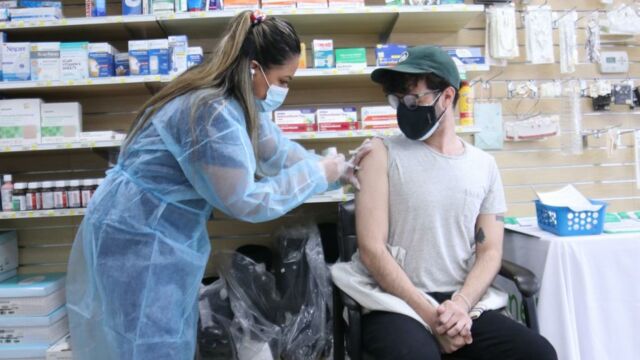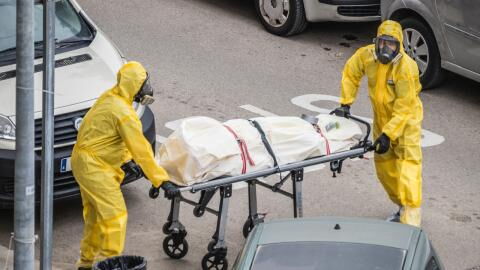The vaccination programme is charging ahead in the UK, but at the same time experts have noticed an increase in vaccine hesitancy—especially when it comes to getting the AstraZeneca jab. While this particular brand has been linked to blood clots, medical professionals have continuously harped on about how the benefits greatly outweigh the risks. Despite their endless appeal, not everyone is convinced.
Discover our latest podcast
Avoiding the second jab
Latest data from the Medicines and Healthcare products Regulatory Agency (MHRA) has revealed that around 400,000 to 600,000 people have opted out of getting their second dose of the AstraZeneca vaccine. As reported by The Independent, 23.9 million people got fully inoculated against the virus up until 18 August, however 24.3 million were eligible to get the second dose—all in all, 600,000 that have yet to book an appointment.
Experts believe that there are a number of reasons behind the discrepancy in the two figures. One reason is that the reports of serious side effects, like blood clotting, have scared off people from getting jabbed with AstraZeneca. Dr. Dean Eggitt, GP at Oakwood Surgery in Doncaster, also tells The Independent that it might be because everyone is over the pandemic. He said:
I think the country has got bored of the pandemic and is reverting to normal activities.
Vaccination does not seem a priority to some people any more.
This revelation is particularly concerning given that one dose of the AstraZeneca vaccine only offers around 30 to 35 percent of protection against the dangerous Delta variant. A second jab has been found to boost protection to 88%.
Azeem Majeed of Imperial College London explained:
If significant numbers of people have only one dose – when combined with those who have no doses – this will leave many people at risk of serious illness from the Delta variant.
Side effects of the COVID vaccine
The probability of an individual getting severe side effects, like blood clots, from the AstraZeneca vaccine is exceptionally low. Similar to other vaccines, like Pfizer and Moderna, those administered with the British vaccine will most likely suffer from mild to moderate symptoms including a sore arm, fever, headache, and fatigue.
The NHS recommends people to reach out for medical assistance if they have these severe side effects between 4 days to 4 weeks after vaccination:
- Persistent severe headache
- Rashes that look like bruises
- Bleeding under the skin
- Shortness of breath
- Chest pain
- Leg swelling
- Headache accompanied with blurred vision















